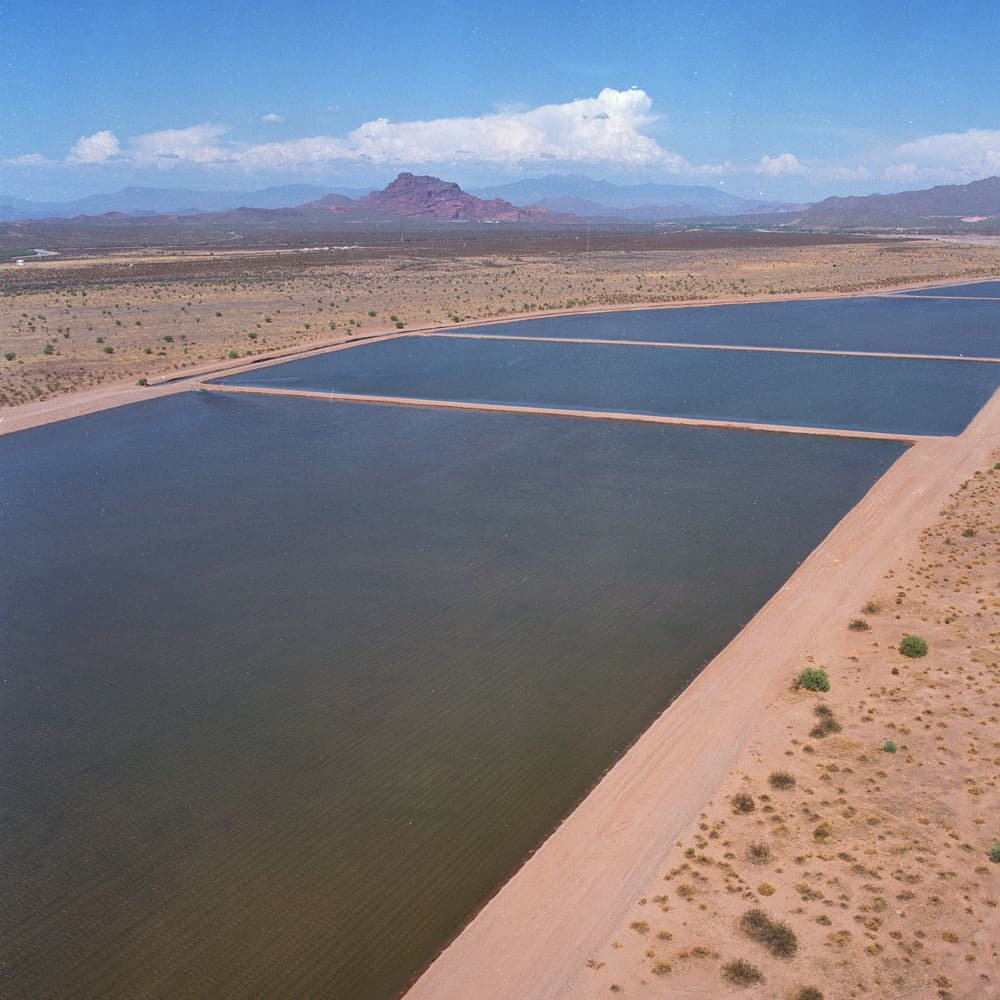AMWUA Blog
BY: AMWUA StaffStoring Water for Our Resilience

Water security is the foundation of our thriving desert communities. We can’t take our water supplies for granted, which is why AMWUA cities constantly adopt innovative strategies to keep your tap water dependable now and in the future. One effective method is storing renewable water underground in local aquifers—a smart tool for long-term water resilience.
Since the 1990s, this practice has expanded our ability to effectively manage water resources. Storing water underground functions as a water savings account for water providers. The AMWUA cities and others have deposited some of their Colorado River or recycled (reclaimed) water into the aquifer. Similar to relying on a savings account during tough times or unexpected challenges, this stored water can be withdrawn to meet community needs during shortages.
Why We Store Water Underground
The AMWUA cities have collectively invested millions of dollars over two decades to make underground storage a crucial part of their water portfolios. This investment allows them to:
- Maximize Resources: Ensure we can fully utilize every drop of Central Arizona Project (CAP) water ordered and paid for, and additionally avoid water loss from evaporation.
- Guarantee Reliability: Ensure we can meet the requirements of our 100-year Designation of Assured Water Supply, especially when surface water supplies are reduced due to shortage.
- Enhance Portfolio Management: Provide greater flexibility in managing diverse water sources to better prepare for growing challenges.
- Protect the Aquifer: Counters groundwater overpumping to ensure the long-term health of our local aquifer, the core goal of the state’s 1980 Groundwater Management Act.
What is an Aquifer?
The aquifer that serves as our "savings account" is not an underground river or lake. Think of it like a deep underground area of porous rock and gravel, similar to water settling in a bucket filled with golf balls. The water fills the spaces between the rock particles and is held there naturally.
Cities employ two main methods to store water in these natural structures:
- Recharge Basins: These are usually earthen basins (often covering a few acres) where water is spread across the ground and quickly filters into the soil and reaches the aquifer.
- Injection Wells: Cities also use specialized wells that allow water to be injected directly into the deep aquifers beneath the surface.
The Right to Store Water
Municipal water providers only store water that they have the legal right to use. The AMWUA cities primarily store two renewable sources:
- Colorado River Water: Delivered via the 336-mile CAP canal, each city has a permanent contract with the Secretary of the Interior, which unequivocally states that water can be stored underground.
- Recycled Water (Effluent): The AMWUA cities have invested hundreds of millions in collecting and safely treating wastewater. The Arizona Supreme Court has affirmed that municipal providers have the right to use this reclaimed water. Cities use this water for multiple benefits, including landscape irrigation.
The Role of Stored Water in the Future
By the end of next year, the federal government will establish new management guidelines for the Colorado River that will reduce the amount of water Arizona receives. How much less Colorado River water the cities will receive is still unknown, but regardless of the reduction, municipalities must continue to fulfill the water needs of their residents and businesses. Consequently, it will become more crucial to withdraw and utilize the water they have stored.
Like drawing from a savings account during an emergency, stored water will be a valuable temporary supply. Yet, it is important to understand that this stored water was never intended to permanently offset significant, long-term Colorado River reductions expected after 2026. Municipalities understand that over-reliance on this stored water could quickly deplete it and harm the aquifer. Ultimately, new water sources must be developed to replace long-term Colorado River cuts and to protect our stressed aquifers.
Storing water underground is smart, responsible management, and a right that cities will defend. After all, they are responsible for protecting their desert communities and the residents and businesses that depend on water security and have invested in it.
For 56 years, the Arizona Municipal Water Users Association has worked to protect our member cities' ability to provide assured, safe, and sustainable water supplies to their communities. For more water information, visit www.amwua.org .
